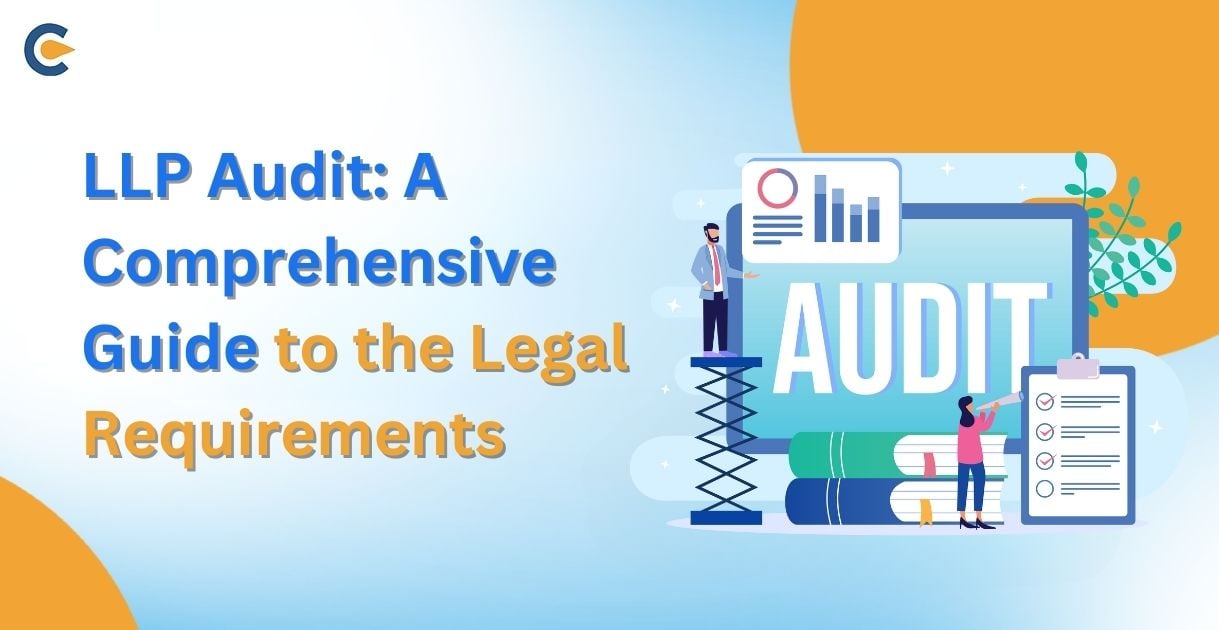Limited Liability Partnerships or LLP are governed by the Limited Liability Partnership Act,2008. An LLP is a corporate legal entity where the partners have limited liability for the obligations of the company. Their personal assets are protected from business and company liabilities. The LLP business structure allows for greater flexibility and autonomy, at the same time protecting personal liability on the part of the partners or members of the Liability Limited Partnership. This structure allows for a limited number of members who have greater control and autonomy over the affairs of the business.
In order to form an LLP or for LLP registration, there must be at least two partners, one of whom must be an Indian Resident. The members who are designated as directors are responsible for the day-to-day functioning as well as discharging the crucial functions of the company. An LLP continues its existence irrespective of the removal or departure of any of its members and is also capable of entering into contracts and acquiring property in its own name. The rights and obligations of the partners are governed by the agreement executed between the partners or between the partners and the LLP.
LLP Audit Requirements
Every corporate entity has to undergo an audit of its books of accounts to ensure compliance with the statutory reporting requirement under the applicable laws of the country. Section 34 of the LLP Act, 2008 and Rule 24 of the LLP Rules, 2009 prescribe LLP Audit Requirements for Partnerships that have an annual turnover of more than Rs. 40 lakhs or capital contribution exceeding Rs. 25 lakhs in a financial year. In order to conduct a financial audit, the LLP must employ a qualified chartered accountant who shall act as the designated auditor. Every LLP that is eligible for an audit must, within 30 days from the end of the six months of every financial year must, submit its books, statement of accounts, and declaration of solvency with the Registrar of Companies (ROC). The Rules have stated that the LLP accounts must be audited in accordance with the rules and accounting standards as notified by the Government from time to time. Further, the LLP must file annual returns duly signed by the directors or partners of the firm and duly verified by the ROC within 60 days of the closure of the financial year. Failure or non-compliance on the part of the entity to undergo financial audit or submit annual reports with the authority can lead to severe penalties for the members or directors of the LLP or even suspension or cancellation of LLP Registration.
Appointment of Auditor
Much like companies, the first step for an LLP audit is the appointment of a statutory auditor. The auditor must be a qualified Chartered Accountant. Such an Auditor can be appointed by the designated partner of the LLP at any time before the end of the first financial year and at least 30 days before the end of every subsequent financial year. Further, when an auditor resigns or is removed before the completion of his designated tenure, it leads to a casual vacancy that has to be filled by the directors by appointing a new auditor. For the time being, the casual vacancy is not filled, and the current auditor shall continue to hold the position, subject to no objection by the directors. The earlier auditor can be re-appointed as well after the end of their tenure. The auditor is responsible for all financial and regulatory reporting functions of an LLP, such as bookkeeping and accounting, statutory audits, reporting, and annual filings with the ROC.
Filing of Annual Statements
An LLP Must file annual records and returns with h ROC in the prescribed form and format. The documents should be duly signed and verified by the directors and partners of the LLP. Annual statements should be filed within 30 days from the close of every financial year. Such records and returns are available for public inspection on the Ministry of Corporate Affairs Website after payment of the prescribed fee to the authority.
Form 11
Form 11 is required to be filed annually by the LLP with the ROC. It contains details of partners and directors, the total contribution of each partner, the paid-up capital of the LLP, and corporate details of the LLP, duly authenticated and verified with the registrar. Form 11 should be filed within 60 days from the end of each financial year.
Form 8
Form LLP 8 is required to be filed within 30 days from the expiry of six months of the current financial year. The form contains a statement of accounts, including its assets, liabilities, income, expenditure, etc., and a declaration of solvency. The document is required to be digitally signed and verified by two designated directors of the LLP and shall be accompanied by a certificate of verification from a practising chartered accountant cost accountant, or company secretary in practice.
Tax Returns
LLPs must file their annual income tax returns in form ITR – 5. The deadline to file Income Tax Returns is 30th September every year. Furthermore, an LLP that has a turnover exceeding rs. 5 crores annually must undergo a tax audit of their books and accounts under section 44AB of the Income Tax Act, 1961. A tax audit report, at the end of the tax audit, is prepared and submitted to the registrar by the auditor in form 3CD.
Benefits of LLP Audit
Statutory audits are necessary for any organization as they not only harmonize accounting and auditing practices but also bring the organization within the purview of the framework of legal and regulatory obligations of LLPs.Since LLP is a compact form of corporate entity, it benefits more than the company from the process of statutory audit. The various benefits that are availed to a partnership as a result of LLP audit are –
- Ensures Transparency
Compliance with laws and regulations is the most important aspect of a LLP audit. LLP Act and Income Tax Act have specified compulsory annual filing and periodic disclosures of accounts of an LLP, duly verified by a qualified professional. This process ensures that all details about the financial standing of the LLP are made available to the regulatory authorities, as well as the public. It helps in ensuring compliance with future requirements of compliance by regulatory authorities.
- Helps develop relations with investors and stakeholders
Limited Liability Partnership is the most suitable corporate structure that gives the directors and partners the freedom to invest and accept investment from domestic as well as foreign investors. Recently, MCA has amended Foreign Direct Investment Regulations (Non-Debt Instrument Rules,2019), permitting 100% FDI in permitted sectors in LLPs. LLP Audit, hence, adds credibility and increases the viability of the firm in the eyes of prospective investors.
- Streamlines Internal Functioning
LLP Audit also helps the company address management and operational issues more effectively. Since the financial statement and audited books reflect accurate information about the company and its internal structure, it helps the directors and concerned managerial persons to effectively make strategies to mitigate the issues faced by the company in the short as well as the long run. 4
- Fraud Detection and Risk Mitigation
Since Limited Liability Partnerships are closely held and controlled organizations, it is difficult to monitor the activities of the director and management of the firm. It often leads to monopoly, and oppression of other members, and can increase the risk of fraud and embezzlement within the company. LLP Audit helps mitigate the risk of internal mismanagement, fraud, and computational errors in the fair valuation of the company’s net worth and cost of assets.
Conclusion
Statutory and tax audits are essential legal requirements for an LLP. They are necessary for legal compliance and the smooth functioning of the business. The directors and partners of the LLP must timely discharge the responsibilities, such as the appointment of an auditor, statutory filings, m submission of records and returns and periodic inspection by the regulatory authorities. Non-compliance with these requirements can entail heavy penal implications for the directors, as well as the LLP and can even lead to the suspension or cancellation of the registration license.
In order to discharge annual compliance requirements for your LLP, you need a reliable and proficient professional to look after various requirements. At Corpbiz, you get all that under one roof. Our in-house team of CAs, Company Secretaries, and Lawyers would provide complete compliance solutions for your organization, ensuring you do not leave out any single procedure in the annual audit for your LLP.
Frequently Asked Questions
- What is a Limited Liability Partnership or LLP?
Limited Liability Partnerships or LLP are governed by the Limited Liability Partnership Act, 2008. An LLP is a corporate legal entity where the partners have limited liability for the obligations of the company. Their liability is limited to their capital contribution and mutually decided and as enunciated in the LLP Agreement.
- Is every LLP required to undergo a mandatory Audit?
No, only those Limited Liability Partnerships that have an annual turnover of more than Rs. 40 lakhs or capital contribution exceeding Rs. 25 lakhs in a financial year are required to undergo an audit of their books and accounts.
- Who is authorized to conduct an audit of an LLP?
As per the Limited Liability Partnership Act, 2008, only a qualified chartered accountant with a certificate of practice can be appointed as the statutory auditor of an LLP.
- How is an auditor appointed?
The designated partner of the LLP shall nominate the name of appointing the designated auditor for the financial year in the first Board Meeting. Such an appointment must be made before 30 Dasy at the end of the financial year.
- What happens if an LLP does not appoint an auditor?
If an LLP does not appoint an auditor within the designated time period, the LLP and its partner would be liable to pay a penalty of not less than Rs. 10,000/- but not exceeding Rs. 5,00,000/-
- What are the forms required to be filed in an LLP Audit?
An LLP is required to file Annual Returns with the registrar in Form 11, containing contains details of partners and directors, the total contribution of each partner, and the paid-up capital of the LLP, corporate details of the LLP. Form 8 contains a statement of accounts and declaration of solvency. Along with these, Income Tax Returns in Form ITR -5 are also required to be filed by the company.
- What is the penalty for non-compliance with tax audits?
If an LLP, having a turnover exceeding Rs. 5 crores, fails to get their accounts audited, a penalty of 0.5% of the total sales, turnover, or gross receipts, or Rs. 1,50,000.
- What is the Public fee for accessing audited accounts and financial statements of an LLP?
The Ministry of Corporate Affairs has made incorporation documents, statements of account and solvency, details of partners, and annual returns available for public inspection for a fee of rs. 50/-.
- How does LLP Audit help a business in the market?
LLP audit benefits a company by ensuring transparency, increasing the reliability and credibility of foreign investors, streamlining internal function and management, and helping in mitigating risks and internal fraud.
- Does Corpbiz help in the LLP Audit process?
Corpbiz provides comprehensive compliance and audit solutions to Companies and LLPs by integrating technology with skilled professional expertise. Our tailored services would help you keep up with the changing landscape of corporate regulatory compliance.
Read Our Article: LLP Audit: A Comprehensive Guide to the Legal Requirements











